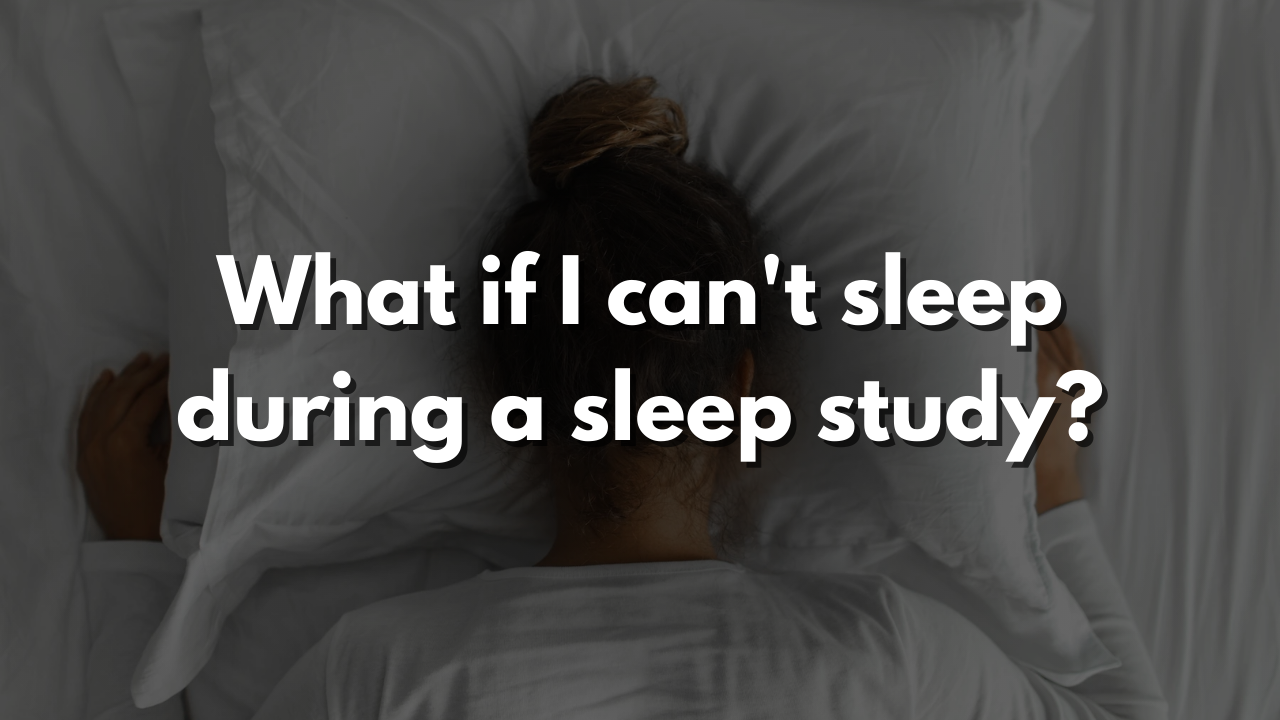If you’re scheduled to undergo a sleep study, also known as polysomnography (PSG), Polysomnography records our brain waves, the oxygen level in our blood, heart rate and breathing as well as eye and leg movements during the study. So, sometimes you might be wondering what happens if you can’t sleep. Sleep studies are crucial for diagnosing sleep disorders such as insomnia, sleep apnea, and restless leg syndrome. But what if your brain and body refuse to cooperate?
What If I Can’t Sleep During A Sleep Study
There are several reasons why you might struggle to sleep during a sleep study:
- Unfamiliar environment: The sleep lab might feel like a hospital room, which can be intimidating.
- Equipment and wires: The sensors and electrodes are attached to your body and it might cause discomfort and make it hard to relax.
- Anxiety and stress: Knowing that you’re being monitored can make you feel self-conscious and anxious during a sleep study.
- Disruption of routine: The sleep study may require you to sleep at a different time or in a different position than usual.
- Sleep lab noise: The lab can be noisy, with sounds from equipment, footsteps, or other patients.
- Bed and pillow: The bed and pillows may not be as comfortable as your own.
- Difficulty relaxing: Some people may find it hard to relax in a new place or environment.
- Fear of not sleeping: The pressure to sleep can create a self-fulfilling divination.
- Medical conditions: Underlying medical conditions, such as chronic pain or sleep disorders, can make it difficult to sleep.
- Caffeine and electronics: Consuming excessive caffeine or using electronic devices before the study can interfere with sleep.
- Sleep stage manipulation: The study may require you to sleep in a specific stage (e.g., REM sleep), which can be challenging.
- Technician interactions: Interactions with the sleep technicians can disrupt your sleep as well.
What Happens if I don’t sleep?
If you’re unable to sleep during the study, don’t worry! It’s not uncommon. The sleep technicians will still gather valuable information from the study, even if you don’t fall asleep. They might:
- Adjust the sleep environment: Make the room more comfortable or adjust the equipment.
- Try relaxation techniques: Guide you through relaxation exercises to help you unwind.
- Reschedule the study: If you’re extremely uncomfortable or unable to sleep, they might reschedule for another night.
Tips to Help You Sleep During a Sleep Study:-
To increase your chances of sleeping during the study:
- Arrive relaxed: Practice relaxation techniques before arriving at the sleep lab.
- Get comfortable: Wear loose, comfortable clothing and bring a familiar item, like a pillow.
- Communicate: Inform the technicians about any discomfort or anxiety.
While it’s ideal to sleep during a sleep study, it’s not the end of the world if you can’t. The sleep technicians are prepared to adapt and still gather valuable information. Remember to relax, communicate, and don’t stress if you can’t sleep. The goal is to understand your sleep patterns and find ways to improve them.
Also Read:

